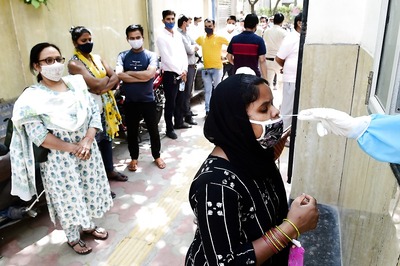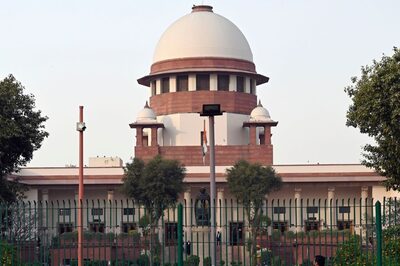
views
Washington: Pakistan's credibility has suffered a "serious blow" in the aftermath of the killing of Osama bin Laden at a compound near its premier military academy in Abbottabad, where the dreaded terrorist had been living for years, a Congressional report has said.
The location and circumstances of bin Laden's killing have "exacerbated Washington's long-held doubts about Pakistan's commitment to ostensibly shared goals of defeating religious extremism, and may jeopardise future US assistance to Pakistan," the Congressional Research Service (CRS) said in its latest report on the implication of the al Qaeda chief's death.
CRS, an independent research wing of the US Congress, prepares periodic report for lawmakers, which is strictly for circulation among Congressmen.
"For a wide array of observers, the outcome of the years-long hunt for OBL (Osama bin Laden) leaves only two realistic conclusions: either Pakistani officials were at some level complicit in hiding the fugitive, or the country's military and intelligence services were exceedingly incompetent in their search for top AQ (al Qaeda) leaders," it said.
"In either case, after many years of claims by senior Pakistani officials - both civilian and military - that most-wanted extremist figures were finding no refuge in their country, Pakistan's credibility has suffered a serious blow," said the CRS report authored by John Rollins, Coordinator Specialist in Terrorism and National Security.
Although there is considerable agreement in US government circles that disengaging from Pakistan is an unwise course, intensive Congressional scrutiny of US assistance to Pakistan is already underway, CRS noted.
In the wake of revelations that the world's most-wanted terrorist had apparently been living for years in a comfortable home in a relatively affluent city and only one kilometre away from Pakistan's premier military academy, Congressional scepticism about the continuation of large aid disbursements to Pakistan has deepened even further, it said.
On May 3, the Pakistan Foreign Aid Accountability Act was introduced in the US House of Representatives. The Act would prohibit future foreign assistance to Pakistan unless the Secretary of State certifies that the Pakistani government was not complicit in hiding bin Laden.
Depending on the course of Pakistan's future policy statements and levels of cooperation with the US, Congress may choose to adjust current assistance funding levels.
Such funding flows are already hindered by US concerns about corruption and lack of transparency in Pakistan's implementing partners.
CRS said the Pakistani military and intelligence services are now under pressure to explain how the mastermind of the 9/11 attacks was able to stay so deep inside Pakistan near a military academy.
"Whatever the answer incompetence or complicity the dynamics provide the US government new leverage in pushing Pakistan to take more positive steps, though some argue that they also point to the limitations of what intelligence cooperation can be expected to achieve," it said.
"... most analysts believe intelligence cooperation can continue and even improve, perhaps with the United States recalibrating incentives and disincentives for Pakistan's security services," it said.
Such a course could reverse some of the damage seen in the bilateral intelligence relationship in recent months, especially following the early 2011 Raymond Davis episode, CRS said.




















Comments
0 comment